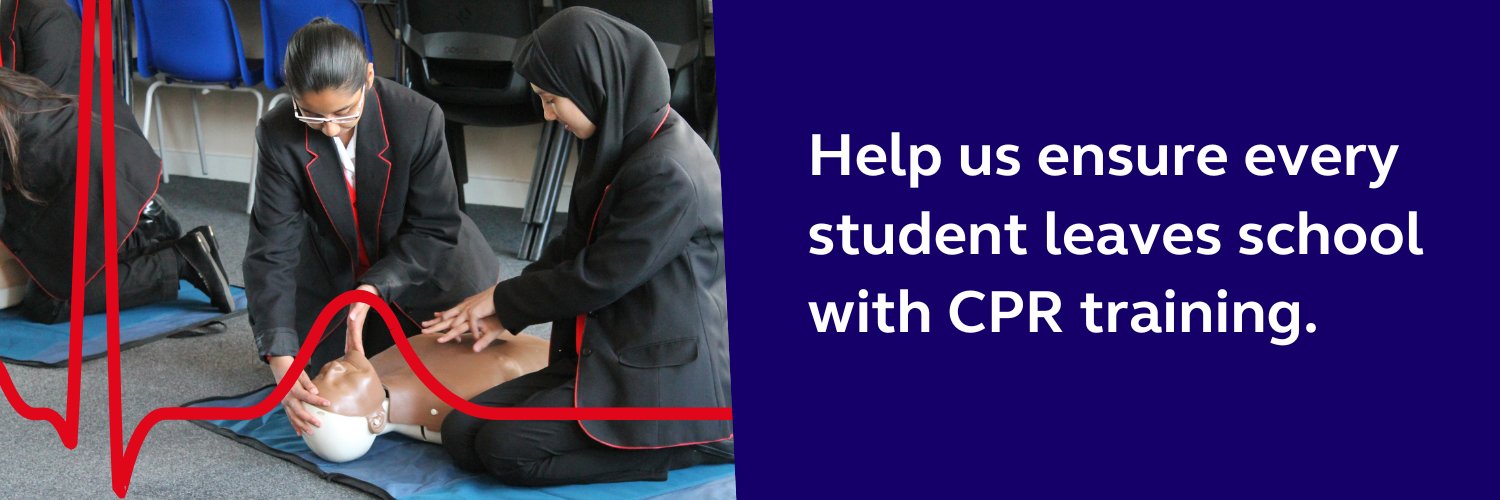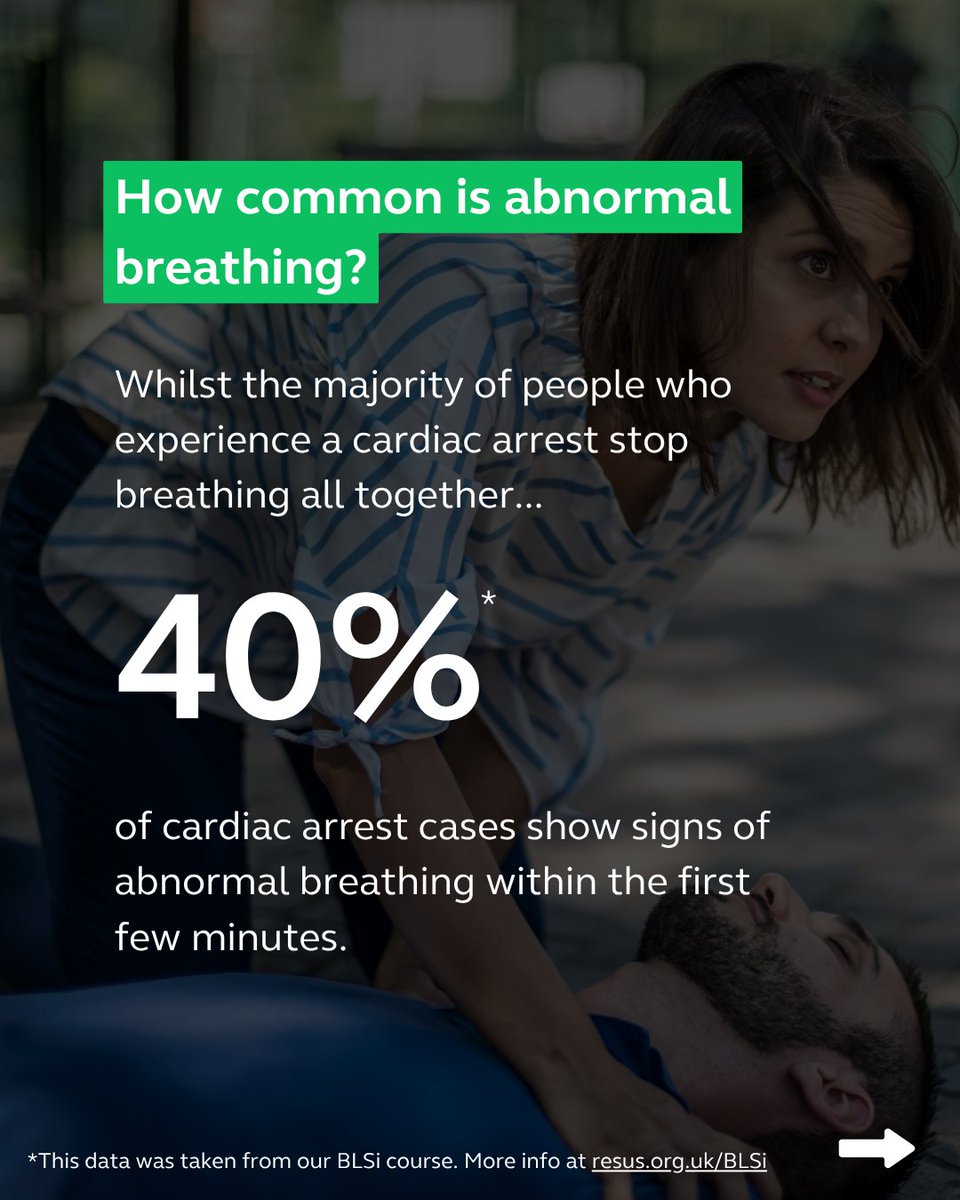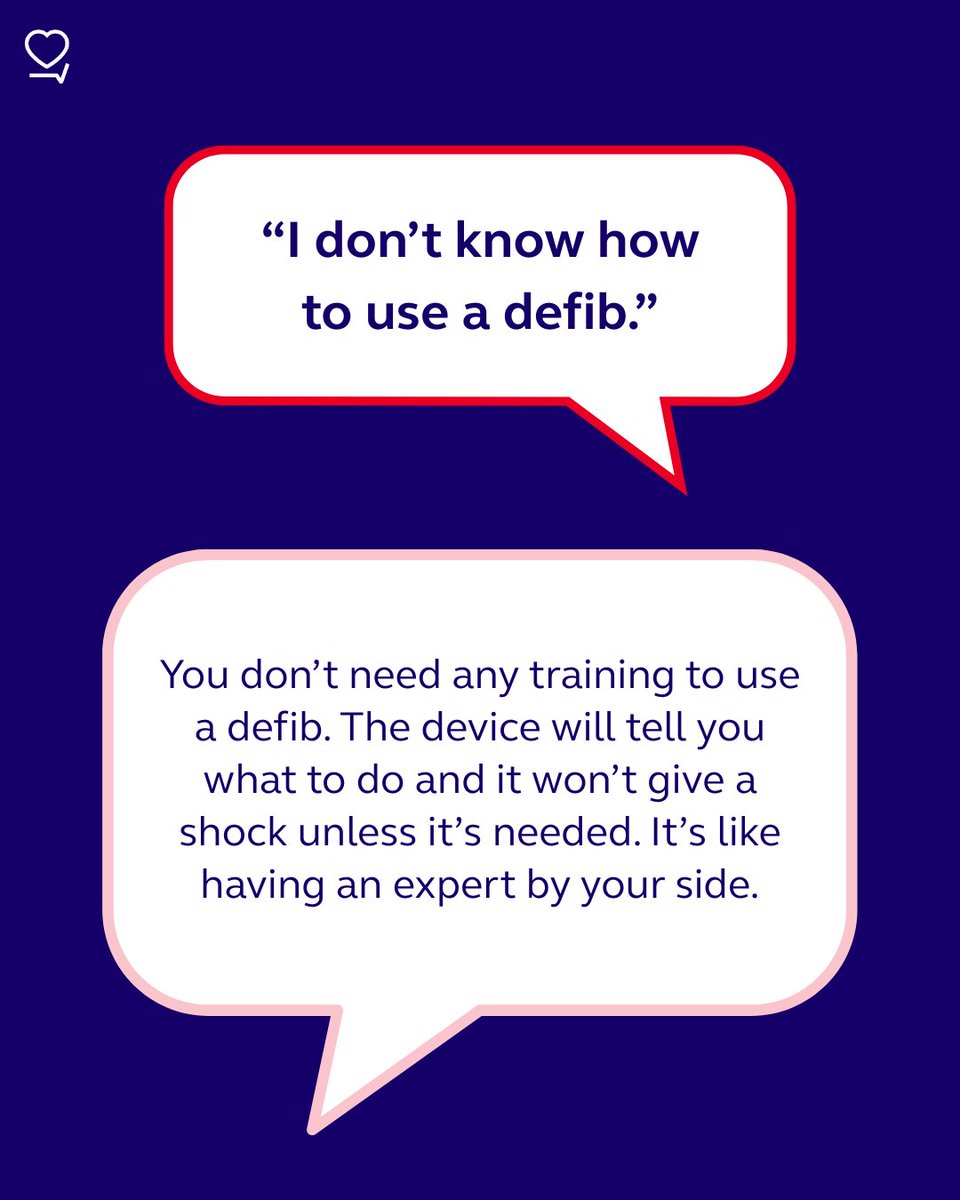
Resuscitation Council UK
@ResusCouncilUK
Resuscitation Council UK is working towards a day when everyone in society has the skills they need to save a life. Visit us at http://resus.org.uk
CPR can save a life, and it only takes a few minutes to learn. Watch this two minute demo and be ready to step up when it matters most.
Ready to act when it matters most? If you're CPR trained, add your name to our ResusReady map and help us pinpoint areas that need greater CPR training and support: resus.org.uk/get-involved/r…

Applications for @TheBHF's defibrillator funding programme are now open! Check eligibility criteria and apply below 👇
The Community Defibrillator Funding programme is open to non-profits, local groups, places of worship, councils, and more across the UK. Find out if you meet the criteria for a free defib: bit.ly/46VrMGU 3/3
If someone is unresponsive, call 999 and put your phone on speaker. You’ll need both hands for CPR 🤲🏽 Speakerphone lets you follow the operator’s guidance while giving lifesaving chest compressions.
If you’ve never used a public access defib before, you might be wondering how you will know when or if someone in cardiac arrest needs a shock. All you need to do is listen carefully to the defib 👇
We've designed our e-Advanced Life Support (e-ALS) course with the busy schedules of healthcare professionals in mind. The e-learning can be completed in your own time before you attend a one-day face-to-face course: resus.org.uk/training-cours…

Don't wait for a crisis to learn CPR. Taking an hour to learn this simple skill could help you save someone's life. 👇 Three powerful reasons to start learning CPR today. Ready to dive in? Visit lifesaver.org.uk ❤️




High-quality chest compressions can help someone survive a cardiac arrest. But what actually makes compressions effective during CPR? 👇 Swipe through to learn the 4 essential elements that can save a life.



The correct answer was 38%. Taking two minutes to identify the closest defib to your house could mean the difference between life and death. Find yours here: defibfinder.uk
What percentage of people don’t know where their nearest defib is?
What percentage of people don’t know where their nearest defib is?
Between the age of 14-35? You’re eligible for subsidised cardiac screening from CRY. Screenings help to identify those at risk and prevent young sudden cardiac death. Register your interest in hearing about screenings near you 👇
Screening to identify young people at risk is cost-effective when conducted correctly – the conditions can be treated, securing a future for those identified. All young people should have the choice to be tested. Register your interest to be screened here: bit.ly/3xMwzuV
A cardiac arrest can happen anywhere, including the workplace. Give your team the skills they need to save a life - it takes just one hour with our interactive e-Lifesaver course! Learn more: resus.org.uk/e-lifesaver

During a PE class, 16-year-old Sam Mangoro collapsed from a sudden cardiac arrest. He survived thanks to quick-thinking teachers, CPR and a defib. This is why CPR training in schools matters. Every student should know how to act in an emergency. 📖 Read his story:…

Think using a defib sounds complicated? It’s easier than you think. They’re designed to guide you step-by-step, even if you’ve never used one before. See how it works 👇




We felt privileged to attend and contribute our insight to this discussion at Parliament yesterday. We look forward to continuing this collaborative work to drive meaningful change and progress in ensuring everyone has an equal chance of survival from cardiac arrest.
Yesterday, Mon 14 July, the APPG for Defibrillators held a Joint Evidence Session with the APPG for Education on CPR training and defibrillator access in schools. Thank you to our speakers for your powerful and insightful contributions.
If you’ve performed CPR, witnessed a cardiac arrest, or supported a survivor - you’re a co-survivor. Your healing matters too. That’s why we’ve created a dedicated resource hub to help guide and support you: resus.org.uk/public-resourc…

Are you a paediatric healthcare professional who may need to act as a first responder? Our Paediatric Immediate Life Support (PILS) course equips you with the skills to manage cardiac arrest in children. Find a course near you at: resus.org.uk/professional-t…

If someone is not breathing at all or not breathing normally, that’s your signal to start CPR. But what does abnormal breathing actually look or sound like during a cardiac arrest? Swipe through to find out 👇




Once you’ve been trained in CPR, it’s important to keep your skills sharp by reviewing them at least once a year. Ready for a quick update? Explore CPR learning resources 👉 resus.org.uk/public-resource When was the last time you refreshed your CPR knowledge?
New to CPR? You’re probably wondering: ❓ What if I do it wrong? ❓ Do I have to give mouth-to-mouth? ❓ Can I even use a defib? You’re not alone. We’ve got answers to help you feel more confident and ready to act 👇




Confidence can help save lives. By teaching CPR in every secondary school, we can build a generation that feels confident to step up and take action during a cardiac arrest. Help us make it happen. Sign our petition today ✍️ action.resus.org.uk/cpr-in-schools



